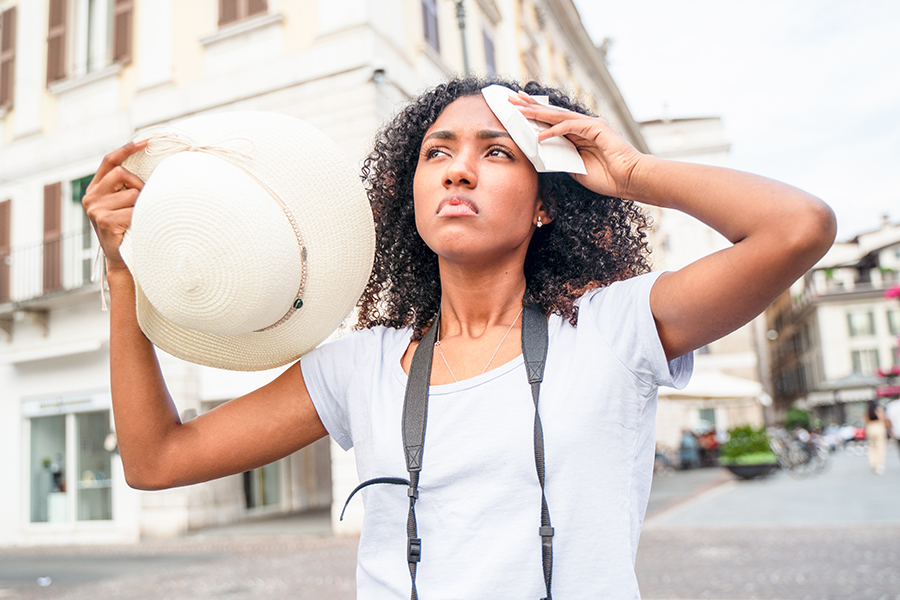As the world continues to face record-breaking high temperatures, knowing how to keep yourself safe from heat-related illnesses is even more important. Hot weather is often underestimated, but can very quickly lead to severe sickness and even death if left untreated.
Some things you can do to stay healthy and safe in hot weather include:
● Drink a sufficient amount of fresh, clean water every day; the recommended amount is approximately 13 cups (104 ounces) per day for men and 9 cups (72 ounces) per day for women, more if you are physically active
● Do not wait until you’re thirsty to drink; drink consistently throughout the day
● Stay indoors as much as possible, in an air conditioned environment: a fan is good, but on its own it might not be enough
● Wear loose clothing that’s light in weight and color
● Wear sunscreen of at least SPF 30 if you are spending time outside
● Talk to your health care provider about how high heat can affect the effectiveness of your medications, or how certain health conditions can be affected by heat
● Limit physical activity, which will exhaust and dehydrate you faster the hotter the weather is
● Cover your windows to keep out sunlight during the day, and if possible open them to aid air flow at night
● Never leave your pet or child in a hot car
● If you are walking your dog, be careful of hot cement or other surfaces; if it would hurt to put your bare skin on it, it can burn your dog’s sensitive paws

Here are a few common heat-related conditions and the symptoms you should watch out for in yourself and those close to you when temperatures rise.
Sun Poisoning
Sun poisoning refers to severe cases of sunburn, caused by exposure to the ultraviolet (UV) rays of the sun. Symptoms include:
● Pain, swelling and/or redness of the skin (blistering in severe cases)
● Dizziness
● Fever/chills
● Dehydration
If you experience these symptoms, get out of the sun, and cool down with cold water or compresses. If you progress to blistering, vomiting, severe head pain, confusion, or fainting, seek medical attention immediately.

Heat Exhaustion
Heat exhaustion is caused when the body overheats. If left untreated, it can lead to heat stroke, an even more dangerous condition. Symptoms include:
● Excessive sweating
● Dizziness/fainting/low blood pressure when you stand
● Fatigue
● Weak, rapid pulse
● Clammy skin
● Nausea/vomiting
● Headache/muscle cramps
If you experience these symptoms, get out of the sun and stay out for at least one hour, and cool down with cold water or compresses. If your symptoms don’t improve within that hour, or if you lose consciousness, become disoriented, or are unable to drink fluids, seek medical attention immediately.
Heat Stroke
Also known as sunstroke, heat stroke is a very dangerous condition caused when the body severely overheats and cannot cool down, and it requires immediate medical attention or it can cause coma, organ failure, neurological problems, and death. Symptoms include:
● Dry skin that doesn’t sweat or excessive sweating
● Difficulty walking//lack of coordination
● Confusion/disorientation
● Hot, flushed/red skin or too-pale skin
● Extreme highs or lows in blood pressure
● Bubbling/gurgling sound in chest (lung crackles)
● Fatigue/weakness
● Inability to urinate
● Rapid breathing and/or heart rate
● Fainting
While waiting for medical attention, cool down with cold compresses and drink water and/or sports drinks heavy in electrolytes.
Residents of New York City lacking adequate air conditioning can visit cooling centers around the city. Locate cooling centers in your area here and here.






